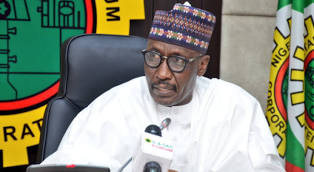The World Bank Group has flawed the financial report by the Nigerian National Petroleum Company Limited’s (NNPCL) to the Federal Account Allocation Committee (FAAC), describing it as lacking essential information and inconsistent with its activities.
The multilateral development finance institution gave this verdict in its May 17, 2024, Accelerating Resource Mobilization Reforms (ARMOR) Report, where it claimed that in addition to lower net oil revenues, NNPCL’s opaque governance had seriously hampered the federation’s ability to receive oil payments.
The World Bank reported: “Non-transparent reporting to the Federal Ministry of Finance (FMF) and the Federation Account Allocation Committee (FAAC), make it difficult for the authorities to oversee NNPCL’s performance, calculate anticipated oil and gas revenues and determine the difference between revenues received by the Federation and NNPCL’s total revenue.
“The reports submitted to FAAC by NNPCL are inconsistent and lack information such as details on pledged revenues, the tradeable value of crude oil, actual payments, and receipts from global trade, among others. As highlighted in the Nigeria Public Finance Review (2022), financial reporting is opaque due to quasi-fiscal activities such as in-kind revenues in the form of crude oil, and costs directly deducted from revenues that would have otherwise been transferred to the Federation Account”, it added.
To support its claim, the Bretton Woods institution cited a case where the NNPCL pledged 35,000 barrels of crude oil per day to the owners in exchange for a 20% stake in the privately owned Nigerian Dangote Refinery.
Specifically, the World Bank noted that although the total value of the contractual investments for pledged oil revenues was estimated to be worth US$5.8 billion at end-2022, the amount eventually declared by NNPCL was below expectation.
It further clarified: “All production sharing contracts signed by NNPC state that all fiscal payments shall be made in-kind by allowing the NNPC to lift tax oil, royalty oil, and profit oil. In joint venture operations, in which the Federation owns 55 per cent or 60 per cent of the equity oil and gas, the NNPC handles crude oil and natural gas receipts on behalf of the Federation.
“Nigeria’s dependence on oil and gas revenue is a source of fiscal vulnerability. During the commodity-price boom of 1996-2014, the revenue-to-GDP ratio was 12 per cent, (albeit considerably lower than the Sub-Saharan Africa (SSA) average of 21.5 per cent at that time), while a decade later, revenue-to-GDP was just 7.7 per cent in 2023.
“Despite a 116 per cent increase in international oil prices between 2020 and 2022-2023, net oil and gas fiscal revenues transferred to the Federation fell in the same period from 2 per cent of GDP to 1.8 per cent of GDP due to falling oil production and the retention of fiscal transfers to finance the gasoline subsidy.
“Oil production fell from 1.8 million barrels per day (mbpd) in 2020 to 1.4 mbpd in 2022-2023 due to insecurity and a lack of investment and adequate maintenance. The cost of the gasoline subsidy increased over this period from 0.9 to 1.6 percent of GDP, deducted directly by the Nigeria National Petroleum Corporation Limited (NNPCL)5 and reducing the net oil revenue transfers to the Federation Account”, the bank added.
The World Bank had reported that between 2021 and 2023, the Federal Government’s foreign exchange (FX) subsidy strategy resulted in revenue loss of N13.2 trillion, comprising N2 trillion loss in 2021, N6.2 trillion loss in 2022, and N5 trillion loss in 2023.
It linked the huge loss to the government’s FX policy regime with a key thrust of controlling the naira’s value in relation to the dollar on the official exchange market while permitting a fair market value price on the black market.






